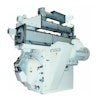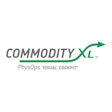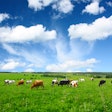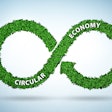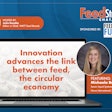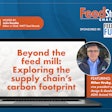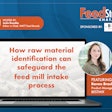Precision agriculture applied in poultry production promises improved cost savings, productivity and health
Cargill recently entered into an agreement to distribute Intelia’s COMPASS platform, a new precision broiler management tool to help maximize bird health and nutrition while informing decision-making at the flock level.
The fully integrated platform connects all of a broiler complex’s systems, turning its data into useful insights and improving its operational performance, efficiency and sustainability.
Robbie Moody, Cargill Animal Nutrition‘s commercial director for poultry, joined the Chat to discuss how this precision livestock tool can enhance broiler production now and in the future.
How new technologies will shape broiler production in the future from WATT Global Media on Vimeo.
Video transcript: Feed Strategy Chat with Robbie Moody, Cargill Animal Nutrition’s commercial director for poultry
Jackie Roembke, Feed Strategy editor: Hello everyone and welcome to Feed Strategy Chat. I am your host, Jackie Roembke, editor of Feed Strategy magazine.
This edition of Feed Strategy Chat is brought to you by Cargill.
Cargill has more than 120 years of experience in animal nutrition solutions. Today, that means helping you feed a growing world — a population that’s expected to expand by nearly 30% by 2050. It also means helping you adapt to complex market forces as regulations change the way you operate, forcing you to find new ways to maximize feed conversion and improve animal performance.
Cargill’s purpose is to help you succeed, so you can do your job more affordably, more efficiently and more sustainably.
Joining the Chat today, we have Robbie Moody, Cargill Animal Nutrition’s commercial director for poultry, to discuss innovations in chicken production. Hi, Robbie, how are you?
Robbie Moody, commercial director – poultry, Cargill Animal Nutrition: Hi, Jackie, how are you?
Roembke: I’m doing well. Thank you. So let’s start from the beginning — please provide a little background about the kinds of technology commonly used in broiler production today.
Moody: Sure, absolutely. So if you look at the broiler industry, especially in the U.S., there’s no shortage of technology to raise and care for the birds. Then we have some of the things you’ll see — our environmental monitors, such as air temperature, lighting, humidity, CO2, ammonia, carbon monoxide monitors, etc,. In addition, you see bird scales, feed scales and other performance indicating measures.
I think we at Cargill see the biggest gap today is being able to kind of orchestrate all this data into one platform that allows the broader companies, the growers, to make better management decisions.
Roembke: And what new or emerging technologies do you see becoming a greater part of the broiler industry in the future?
Moody: I think if you start at looking at the whole concept of precision livestock, and you look at other industries, such as crop agriculture and how they’ve embraced these technologies, I firmly believe that tools like that in the broiler industry that can help manage, monitor, model and enhance decision-making will become very important.
The data from digital platforms and technology, like Intelia, can help maximize bird health, well-being, operational performance, efficiency and even sustainability. They turn data into insights that inform bird health, nutrition and management decisions.
We believe the use of these precision livestock tools in poultry production have the potential to create a competitive advantage for those producers and companies that do embrace the new technology and the change that requires.
Roembke: Can you tell us a little bit more about Cargill’s partnership with Intelia?
Moody: Yeah, so if you look at the whole concepts of precision livestock farming or digital tools — or even data management — has become an essential part of the solutions we use to add value for our customers.
Cargill is building an ecosystem of synergistic solutions that enable our customers to be more efficient and profitable, while also supporting food safety, animal health, welfare, and even sustainability to serve the needs of the customers and consumers today and tomorrow.
This ecosystem is being built through a combination of internal development and external partnerships, such as the one within Intelia.
We know Cargill and Intelia can go further together in addressing the most critical needs for our customers.
Roembke: What does this mean for broiler producers in the U.S. and in Canada?
Moody: Yeah, I think we see it as three big buckets where we can really move the needle. First, having real-time access to to broiler data, such as weights, weight prediction and feed consumption, allows producer to ensure performance is expected and make smarter harvest planning decisions to control cost and prevent downtime at the processing facilities.
Up next, I think we talked about the feed and the importance of feed to the broiler as well as the overall cost of the to the broiler companies. But being able to have better optimization, more efficiency around feed manufacturing and feed delivery should provide for a better return on investment.
And thirdly, I think, having insights to these parameters that the environment that we discussed, that we can make a movement to and adjust to support health, well-being and growth, ultimately impact feed conversion and provides a better return for the broiler companies.
Roembke: Great, thank you so much, Robbie. Contact your Cargill or Provimi representative to learn more about this exciting opportunity and how it can help support your poultry business.
Thanks again, Robbie. And thanks to you for tuning in.
